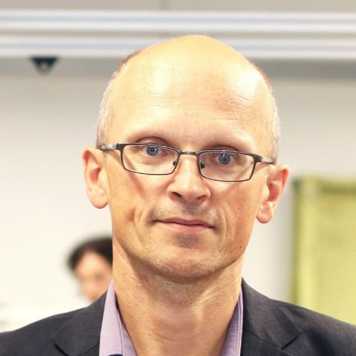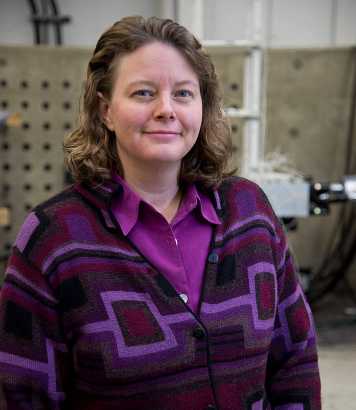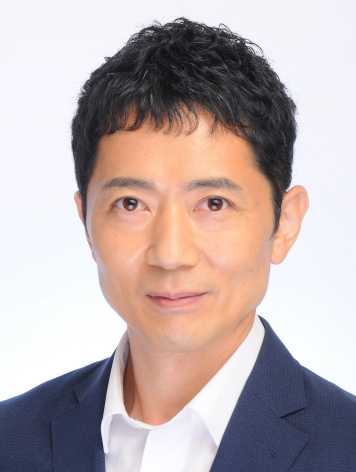Keynote Lectures
Holism, emergence and the philosophy of digital twins

June 17, 2024 | 09:00 am
external page Prof. David Wagg
University of Sheffield, UK
Digital twins offer the possibility of interconnected virtual representations of the world around us. The digital twin concept has been adopted widely by multiple communities of practitioners, researchers and innovators. In particular policymakers and governmental agencies have identified digital twins as having many potential applications offering a wide range of societal benefits. Part of the digital twin paradigm is about interconnecting and integrating digital objects, many of which have previously not been combined, often to address socio-technical applications. The different starting points, assumptions, cultural practices, biases and motivations of those involved, means that discussions across the socio-technical sphere are often at cross-purposes and without a common philosophical world-view. Therefore, the philosophical context which underpins the concept of digital twins is an important area to make clear. This leads to a set of philosophical principles for digital twins, which are intended to help facilitate their further development. We argue that the philosophy of digital twins is fundamentally holistic (e.g. anti-reductionist). Furthermore, digital twins are reconstructivist, meaning they are designed to reconstruct (some or all of) the behaviour of a physical twin by assembling a series of ``components'', such as models, agents and data sets. Importantly, these digital twin components have the potential to capture emergent behaviours when they are dynamically assembled. Understanding the philosophical principles allows key questions to be investigated. We discuss: (i) What is the difference between a model and a digital twin? (ii) Can previously unseen results be observed using digital twins? (iii) How can emergent behaviours be simulated.
David's research interests are focused on improving the performance of engineering systems. For a significant number of applications, including wind power, land transport, aerospace and large civil infrastructure, dynamic effects can dominate the operational performance regime. His current research activities are focused on developing techniques for the design, implementation and interoperation of digital twins for engineering applications. Quantifying uncertainties within a dynamic digital twin context is a major topic of interest. Uncertainty (and trust) relates to the overall objective of validating the outputs of a digital twin. Other topics of interest include developing software & hardware platforms for digital twinning, and using ontological knowledge models for interoperation between digital twins.
Recent Innovations in Structural Vibration Control

June 17, 2024 | 09:45 am
external page Prof. Shirley Dyke
Purdue University, West Lafayette IN
Structural control has made several giant leaps forward since its introduction to the field of civil engineering about 50 years ago. Relatively speaking, the number of applications is not large. However, the role that structural control has played in learning how to design infrastructure that can withstand extreme events is substantial. Furthermore, introducing this concept to the discipline of civil engineering has led to new opportunities in adjacent fields such as structural health monitoring and hybrid simulation. The experience gained through the adoption of superior control methods, the quantification and management of uncertainty, and understanding the coupling between the devices and structure has influenced expectations related to the performance of our structures. Over this time our ability to protect of our infrastructure against sources of vibration and disturbance has been brought to a high degree of sophistication. Recent trends have further added the ability to augment human comfort to that of risk reduction. The presentation will reflect on recent innovations and current opportunities in structural vibration control.
Shirley holds a joint appointment in Mechanical Engineering and Civil Engineering at Purdue University. She is the Director of Purdue's Intelligent Infrastructure Systems Lab and the Director of the NASA-funded Resilient ExtraTerrestrial Habitat Institute. Her research focuses on “intelligent” structures, and her innovations encompass structural health monitoring and machine learning for structural damage assessment and reconnaissance support. She holds a B.S. in Aeronautical and Astronautical Engineering from the University of Illinois, Champaign-Urbana in 1991 and a Ph.D. in Civil Engineering from the University of Notre Dame in 1996. Dyke is the past Editor-in-Chief of the journal Engineering Structures. She was awarded the Presidential Early Career Award for Scientists and Engineers from NSF (1998), the George Housner Medal by ASCE (2022), the SHM Person of the Year Award (2021), the International Association on Structural Safety and Reliability Junior Research Award (2001) and the ANCRiSST Young Investigator Award (2006).
Post-earthquake rapid assessment of structures using IoT sensors

June 17, 2024 | 10:30 am
external page Prof. Tomonori Nagayama
University of Tokyo, JP
The advent of Internet of Things (IoT) technology has revolutionized the field of structural engineering, particularly in the domain of post-earthquake assessment. This study presents a comprehensive approach for the rapid assessment of structures using IoT sensors in the aftermath of an earthquake. The proposed methodology integrates advanced sensing technologies, data analytics, and structural health monitoring principles to evaluate the structural condition swiftly by mainly estimating the displacement responses including the maximum and residual components through data assimilation techniques. The outcome of this research is a step towards resilient infrastructure, providing a basis for informed decision-making in post-earthquake scenarios. By enabling rapid and accurate assessment, the proposed IoT-based approach aims to significantly reduce the time and resources required for damage evaluation, ultimately contributing to enhanced safety and quicker recovery of affected communities.
Tomonori obtained his B.S. (2000) and M.S. (2002) in civil engineering from the University of Tokyo and his Ph.D. (2007) in civil and environmental engineering from the University of Illinois at Urbana-Champaign. He is currently a professor in the Department of Civil Engineering at the University of Tokyo. He received 2007 ASCE Raymond C. Reese Research Prize, 2019 Prize for Science and Technology (Development Category), the Commendation for Science and Technology by the Minister of Education, Culture, Sports, Science, and Technology, and 2020 ASCE Moisseiff Award. His research interests include data assimilation for structural dynamics, seismic and wind engineering, and infrastructure monitoring using probe vehicles.